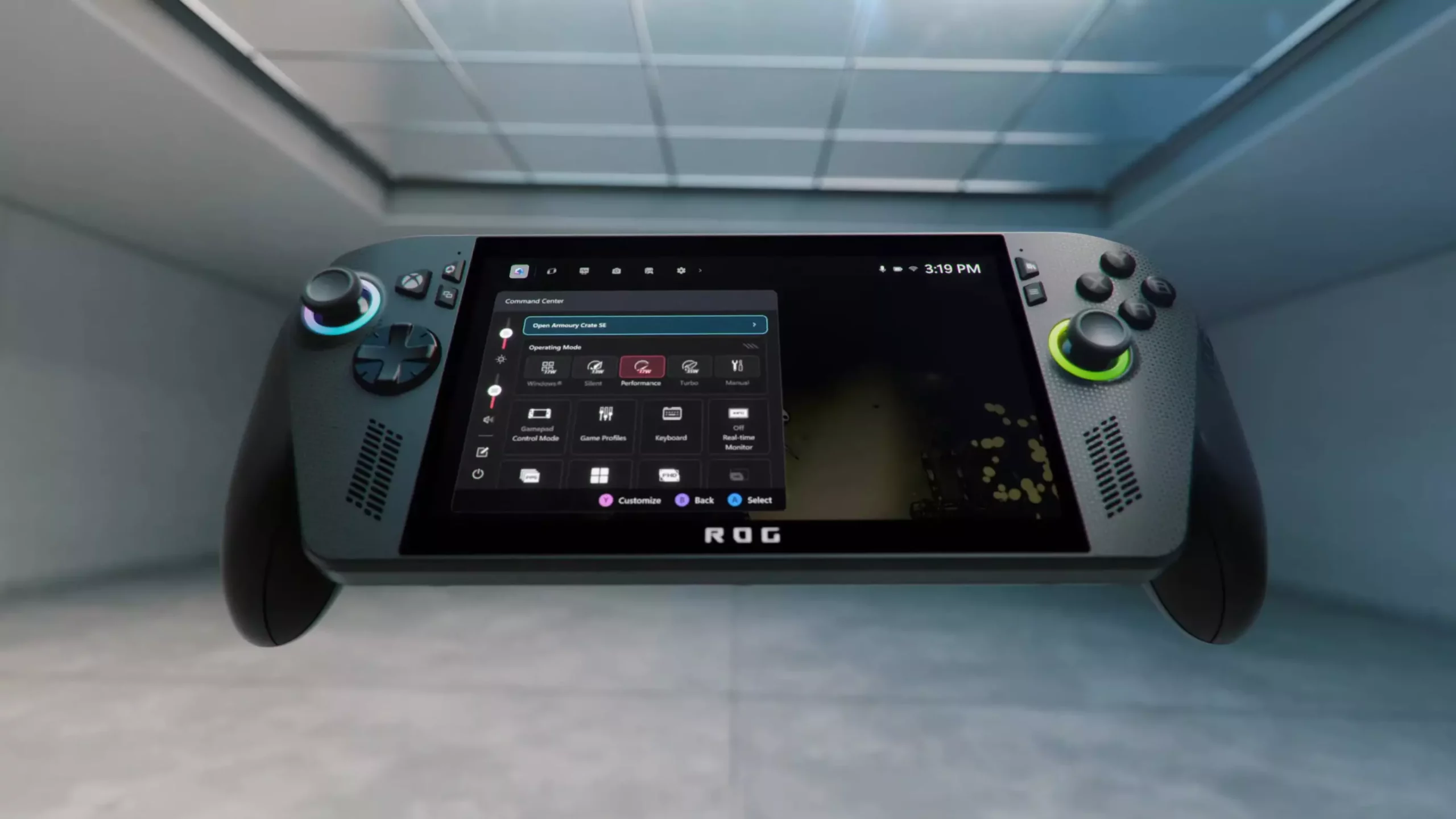Recent news swirling around the gaming community suggests that the long-anticipated Xbox handheld console might already be a lost cause. The report from The Verge, indicating that it’s “essentially canceled,” raises eyebrows and stirs confusion. After all, wasn’t there an announcement regarding a new Xbox device? This contradictory situation highlights a significant reality: This so-called handheld console is still nestled in the realm of rumor, straddling the line between speculation and fact. The question looms large—what are we truly witnessing with the Xbox brand and its future in portable gaming?
The newfound Asus ROG Xbox Ally and ROG Xbox Ally X have indeed garnered attention, yet they are not standalone Xbox consoles as many may have assumed. Instead, these are portable gaming devices that utilize standard PC components, evolving from existing technologies rather than representing a new console evolution from Microsoft. They run on a modified Windows operating system aimed specifically at enhancing gaming performance while eliminating extraneous features that often bog down user experience. This development implies that Microsoft’s strategy may be more about leveraging existing hardware technology than producing bespoke gaming devices.
A Shift in Strategy: Is Microsoft Abandoning Console Production?
Industry analysts predict a transformative shift in Microsoft’s approach to gaming hardware. The expectation is that instead of launching new Xbox consoles, the company will forge partnerships with hardware manufacturers like Asus. Such collaborations may allow Microsoft to retain its market share within the gaming landscape while pivoting away from the intricate process of in-house console manufacturing. This perspective proposes a future where Xbox branding is licensed to several manufacturers, creating a diversified ecosystem of gaming devices that offer a range of price points and specifications tailored to various audiences.
This predicted methodology appears to be part of a broader strategy to sustain subscriptions to Xbox Game Pass. By providing a variation of devices powered by a streamlined version of Windows, Microsoft aims to cater to a wider demographic without the burdensome overhead of hardware production. Such a strategy is particularly intriguing—it reflects a move away from the all-in-one console model that characterized previous gaming generations and embraces a more flexible, partnership-oriented approach.
Convergence of Xbox and PC: A Digital Playground
In light of these developments, the concept of “one Xbox” is evolving. Microsoft’s ambition to intertwine Xbox and PC gaming efforts illustrates a desire to simplify the user experience across all platforms. The advent of these new handhelds and the underlying software developments could signal a more significant trend—a future where gamers might access Xbox experiences on their existing devices. Instead of being confined to proprietary hardware, players could enjoy gaming across an expansive range of screens, turning virtually any device into a gaming powerhouse.
Furthermore, the landscape seems to shift as Microsoft aims to craft a digital ecosystem that encompasses traditional Xbox consoles, PC-related gaming, and handheld devices, all under a singular branding strategy. A unified platform promises to streamline user experience and offers access to an extended library of titles through emulation and cloud gaming. This strategical alignment, as mentioned by Tom Warren, suggests that Microsoft is not merely optimizing for handheld devices, but rather expanding its gaming empire through degrees of interconnectivity and ubiquitous accessibility.
Indications of a New Era: Signs from the Xbox Games Showcase
Recent branding changes noted during the Xbox Games Showcase reinforce this idea, with Microsoft transitioning to “Xbox PC.” Mentioning Steam directly as a competitor adds another layer to the narrative. This signals a notable shift in how Microsoft perceives its competition and its gaming ambitions. Rather than viewing competitors solely within the confines of console rivalry, the company appears to be broadening its competitive scope to encompass the entire gaming ecosystem, including desktop and handheld devices currently revolutionizing the industry.
As we look forward, the situation is continually developing. While none of these prospects are formalized or set in stone, the emergence of devices like the Asus ROG Xbox Ally suggests a fascinating and potentially disruptive change on the horizon. It beckons gamers to anticipate a future where Xbox transcends the limitations of its own hardware, morphing into a versatile brand that embraces partnerships and pushes the boundaries of what gaming can be in today’s highly digital world. The next few years might reshape the gaming landscape as never seen before, where flexibility is as valuable as gaming itself.

